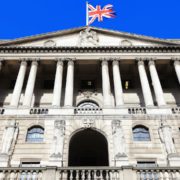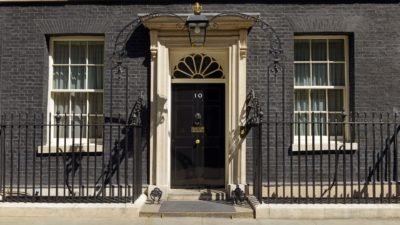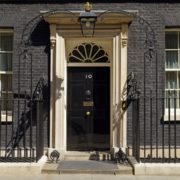The Bank of England has decided to maintain the base interest rate at 5.00%. This decision was driven by the need to balance ongoing concerns about inflation with signs of an economic slowdown.
Although inflation has started to ease, it remains above the Bank’s target, prompting a cautious approach. Recent economic data indicated a slowdown in growth, influencing the decision to avoid further strain on the economy by holding the rate steady. Additionally, the labor market remains tight, with wage pressures contributing to inflationary concerns.
The Bank of England signalled that future rate decisions will be data-dependent, closely monitoring inflation trends and overall economic performance. This decision offers a temporary reprieve for borrowers facing higher costs and provides some stability to the housing market, which has been impacted by fluctuating interest rates.
Businesses might also find it easier to plan investments in this stable interest rate environment, though uncertainties remain. The Bank will continue to closely observe economic indicators to guide its future monetary policy decisions.
Industry comments
Mark Harris, chief executive of mortgage broker SPF Private Clients, says: “It is no surprise that base rate has been held for another month, even though with inflation hitting the 2 per cent target it is time for the Bank of England to be bold and start reducing rates.
“With yet another rate hold, borrowers will find not much changes in the short term. Those on fixed and variable rates alike won’t see their monthly mortgage payments change, so those sitting on their lender’s standard variable rate in the hope that rates will start falling soon may wish to seek advice and consider opting for a base-rate tracker or fixed rate to reduce their mortgage payments.
“Swap rates have fallen on the back of the latest inflation news and it will be interesting to see how they react to the voting split at this meeting. The more members who vote for a rate reduction, the more likely it is that this will occur sooner rather than later, which is likely to be reflected in Swaps and ultimately mortgage pricing. It will also impact how many rate reductions we see this year; with seven members still voting for a hold and two for a reduction, it may reduce the likelihood of more than one quarter-point cut in 2024.
“A significant reduction in Swaps over coming days may lead to mortgage rate reductions. However, it is only when the market feels the tide within the Bank has turned that true reductions in fixed-rate mortgages will reach the market again, bringing some good news for borrowers.”
Anna Clare Harper, CEO of sustainable investment adviser GreenResi, says: “This is a missed opportunity to boost our economy and housing market at a time when growth is needed.
“The cost of finance, closely related to the base rate, is one of the most significant determinants of today’s property market.
“With finance costs high, the market is paralysed.
“Unlocking the housing market requires either interest rates to come down or house prices to come down in nominal terms. The latter is a politically untenable and therefore unlikely. So, we need interest rates to come down before investment in existing and new homes will grow.”
Amy Reynolds, head of sales at Richmond estate agency Antony Roberts, says: “While it is not surprising that the Bank of England held rates again at 5.25 per cent, stable interest rates mean a stable, albeit relatively dull, housing market.
“While this is far better than ever-rising rates, we need a rate reduction to stimulate activity in the property market. Buyers are having to be more price-conscious and sellers increasingly realistic about their pricing.
“Now that the inflation target has been met, it is time for the Bank to act. If the election result provides a clear direction, we anticipate a surge in market activity as delayed transactions are completed. We are cautiously optimistic for the second half of the year – confidence in the market is likely to rebound, potentially leading to a stronger performance, and a rate cut would assist with an autumn bounce.”
Jeremy Leaf, north London estate agent and a former RICS residential chairman, says: “Although a cut to base rate would give some added impetus to the housing market following the uncertainty which the election announcement inevitably brought, no change was expected.
“Inflation is thankfully falling but it is early days as pressures remain in wage growth and the services sector in particular.
“Hopefully, lenders will sense that a drop in base rate is coming sooner rather than later and begin reducing their mortgage rates, however marginally, in anticipation which will certainly improve confidence.”
Marylen Edwards, head of lending – BTL, at property lender MT Finance, says: “Considering we are in the run-up to a general election, it is no surprise that the MPC chose to err on the side of caution and hold the base rate.
“However, a rate cut would have been welcomed by property owners and buyers alike, particularly after inflation falling to 2 per cent in May.
“Despite the freeze, we remain optimistic that once we have more political and economic stability, we will follow in the footsteps of countries like Sweden who have already reduced borrowing costs.”
Following the news that the Bank of England has held rates at 5.25% once again in today’s MPC meeting, Liz Edwards, money expert at personal finance comparison site finder.com, gives her thoughts:
“The Bank of England has once again made the decision to hold the base rate at 5.25%. Although this outcome was widely expected, the news will no doubt still come as a disappointment for homeowners and potential buyers across the UK. Many first-time buyers have been in a state of limbo over the last couple of years as they wait for borrowing rates to come down. In fact, figures show that the number of first time buyers in the UK fell by a significant 21% between 2022 and 2023. Unfortunately, another base rate pause could continue to subdue buyer confidence, and it’s unlikely that we’ll see any real stability in the housing market until the base rate starts to come down and brings these volatile borrowing rates under control.
“Previously experts were confident in forecasting a rate cut for June or August, but it now looks as though this may not happen until as late as September. Although the BoE has finally reached its 2% inflation target, the challenge will be bringing the base rate down without triggering an inflationary spike. In order to avoid this, the BoE will no doubt be cautious when it comes to rate cuts.”



























Comments